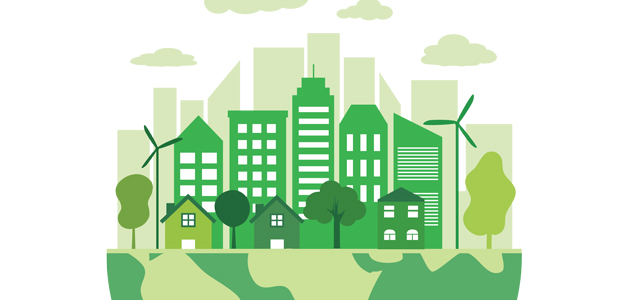
Don’t miss the boat: What it means to be a sustainable startup is going to completely change in 2023
Something needs to change, and every business leader knows it. The world, as configured today, is at odds with a thriving, livable planet in the future.
That’s why all businesses, particularly startups, are trying in some way or another to be less a part of the problem and more a part of the solution. They don’t want to be square pegs in the round hole future we need.
Over the last decade we have seen a race of sorts by businesses to work out how they can round their own edges. Some efforts have been feeble, some downright misleading, but many earnest attempts to stop having a negative impact on the world. All businesses today know they must take sustainability seriously.
For startups wanting to challenge incumbents in industries full of environmental and ethical shortcomings, being holier and greener than thou has become a key strategy. They want you to believe the incumbents belong in the past, and the better future will be thanks to them. This is the right approach, but be warned - what it means to be a sustainable company, and what it therefore means to be the hero your industry needs, is about to completely change.
Patching up holes won’t get you very far
From B Corp certification and ISO Standards, Organic and Fairtrade ingredients, to carbon foot-printing and offsetting, there has been a frenzy of activities; all necessary and mostly commendable. All, also, more focused on bailing out and patching up holes, rather than building boats fit for the seas to come.
The boats remain leaky because most companies, challengers and incumbents alike, still rely on the exploitation, extraction, and degeneration of natural resources. In some cases that will be very direct, and in others it will be indirect. After all, almost all roads lead back to the burning of fossil fuels.
As we watch this frenzy of bailing out and patching up, it’s easy to miss what’s going on in the peripheries of the harbour. Look closely and we’re seeing the emergence of a new model of business, re-redefining what it means to be a sustainable business. Companies whose business model is built from the ground up from a nature-based solution. Because the starting point for these companies is working out how to make the most of a regenerative process or input, their ships don’t have leaks.
The regenerators are setting sail
Take Wildfarmed for example, an overnight success which has been 15 years in the making. They have pioneered a regenerative approach to farming wheat; restoring soil health, boosting biodiversity, and growing nutritionally dense, forgotten strands of everyone’s favourite grain.
It took years of blood, sweat and tears for their co-founder Andy Cato to develop and refine his low-till, cattle-grazed, inter-cropped regenerative approach - but clever farming techniques alone won’t start a food revolution. What’s just as impressive as their farming techniques is that, in a food system that values quantity over quality, Wildfarmed have been able to create a new market for their nutritiously-rich, planet-saving flour, by becoming the supplier of choice for all the coolest chefs and bakers across the country. And now it’s going mainstream after the startup announced a collaboration with Marks and Spencer late last year.
What Gore-Tex is to the raincoat, looking to convince you that it’ll keep you dry in the harshest of conditions, Wildfarmed is to the artisan pastry, bread or pizza, looking to convince you it’s of the highest quality and most environmentally virtuous. With the trendiest cafes and restaurants banging their drum for them, they have the demand side sorted, and through training and onboarding other land-owners and farmers to become Wildfarmed farmers, they are building the supply side too. By doing both simultaneously, they are leading a food revolution.
From boring old wheat, to bleating sheep, the startups of the future seem to start in the most prosaic of places. Take Sheep Inc as another example. If Wildfarmed hope to put wheat at the centre of a food revolution, Sheep Inc hope to put these animals at the centre of a fashion revolution. By combining old sheep grazing techniques with cutting-edge manufacturing technologies, Sheep Inc has created the first genuinely carbon negative fashion brand - meaning in a real and verifiable sense, more greenhouse gases are stored in the earth than emitted into the sky during the process of making their garments. How’s your carbon offsetting stacking up now?
Doing this doesn’t just require regenerative farming techniques, but cutting-edge supply chain technologies with verifiable data and traceability. Technology which Sheep Inc has built itself. Other companies can muddy the waters all they want with dubious claims of carbon neutrality and offsets, but Sheep Inc has set its course on the horizon and is sailing out ahead into clear seas.
Two companies lit up by their missions
What’s perhaps most remarkable about both companies is how they have channeled their devotion and love of their respective natural solutions and manifested it into companies that burn bright from their missions. Both Wildfarmed and Sheep Inc have shown entrepreneurial prowess, using short-term wins (delicious pastries and stylish beanie hats) to propel their much bigger missions of rewiring how their industries work.
They are making profound, beautiful products; they are restlessly innovative and ambitious, and they are building the new model of what it means to be a sustainable business. Most companies know, deep down, that another sale, or a year of good growth, doesn’t fundamentally leave the world a better place. And it is this incompatibility which will mean these companies will always have to spend more time looking down than looking forwards.
When they finally do look up, they’ll notice there are already some other companies disappearing over the horizon.

